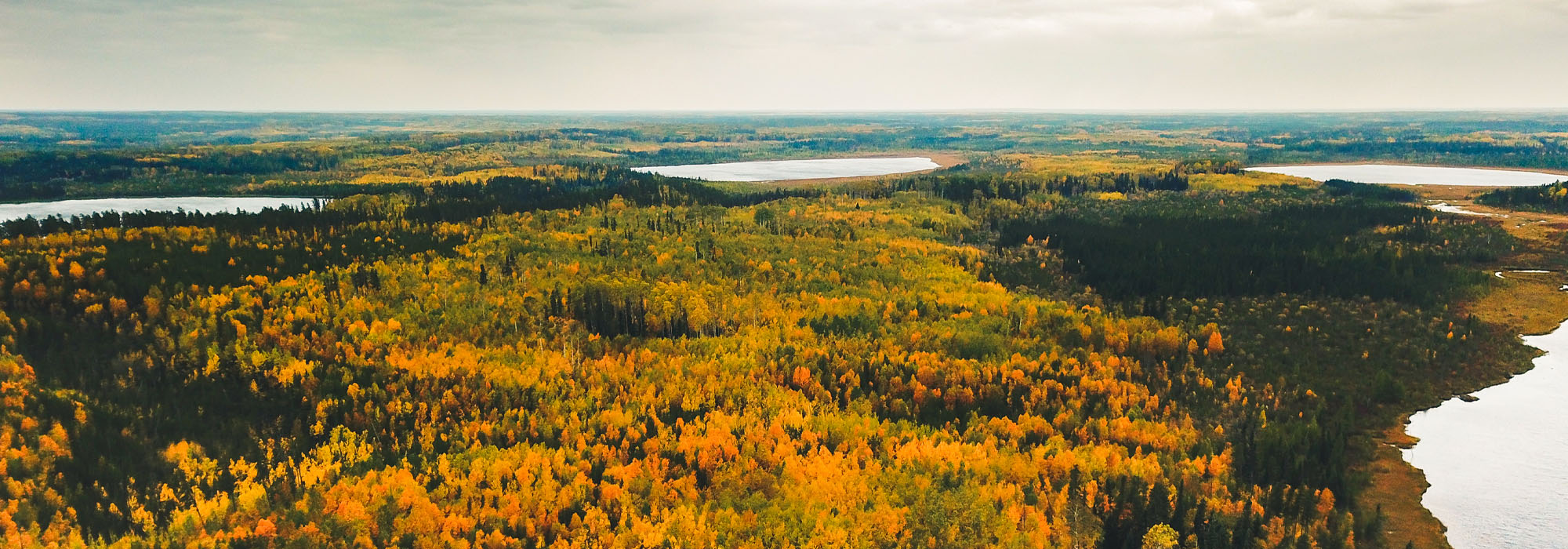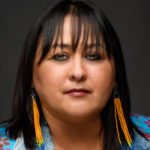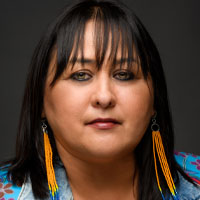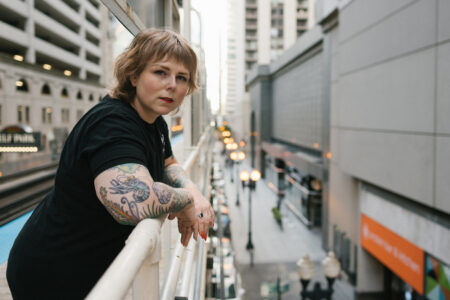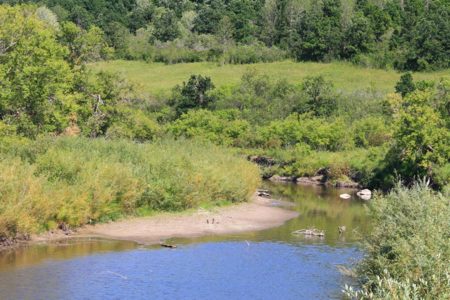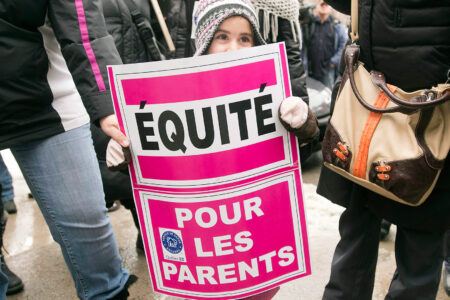
For six months now, the people of the Matawa First Nations have been living in a state of emergency. The communities of Webequie, Nibinamik, Neskantaga, Eabametoong, Marten Falls, Aroland, Long Lake #58, Ginoogaming and Constance Lake have been locked down, and their movements in and out are still restricted and monitored in an effort to prevent the spread of COVID-19.
Fears around the pandemic came to our communities during the first weeks of March, when 60 people from First Nations of the Matawa Tribal Council (Matawa) attended the Prospectors & Developers Association of Canada’s annual convention in Toronto, with its 23,144 attendees from around the world. Another 551 people from nine First Nations in Matawa and six First Nations from Keewaytinook Okimakanak attended the 13th Annual Matawa Education Conference in Thunder Bay.
Due to the health/social conditions and lack of services in our communities, we knew we were already behind the proverbial eight ball. We took no chances and put in the highest levels of protection. As a result, our per capita infection rate of COVID-19 has been low – only six positive cases from the start of the pandemic to the beginning of September. The Matawa Health Co-operative administered more than 400 COVID-19 tests, both in the city of Thunder Bay for off-reserve members, and in our First Nations in nursing stations or drive-through blitzes.
The six cases in Matawa represented an overall infection rate of 5.6 percent (using an on/off reserve Matawa population of 10,709). The communities of Aroland, Constance Lake, Ginoogaming, Marten Falls, Neskantaga, Nibinamik, and Webequie, thankfully, did not have any on-reserve positive cases. Sadly, one death took place. An off-reserve Constance Lake member, and childhood friend of mine, succumbed to complications related to COVID-19 on April 3, 2020. Rest in peace, nee tohtem (my friend) Pauline Louise Wesley-Dumoulin.
Despite the low case counts, our communities have experienced continuing crises starting with the death of Ginoogaming’s long-serving “People’s Chief” Chief Celia Echum on May 9; failing diesel generating systems in Nibinamik on May 14, and; an evacuation of approximately 600 of the most vulnerable in Eabametoong due to a forest fire and smoke emergency on August 11. All evacuees required COVID-19 testing and a 14-day isolation period, which included the need for provisions of food upon returning to their community starting the week of August 23. Thankfully, diligent execution of precautionary measures taken in Kapuskasing, Timmins and Thunder Bay, where evacuees were hosted, resulted in zero cases in the community upon their return.
Adding to the crisis was the uncertainty around whether we would get adequate funding to ensure the safety of students returning to on-reserve schools in September. This is what parents in schools in municipalities would expect. Working with the education directors in our communities, Matawa sent a detailed/costed safe schools proposal to Ontario Education Minister Stephen Lecce and to Indigenous Services Minister Marc Miller on July 16. As of the date of this article’s publication, we have yet to receive a response. On August 26, Indigenous Services Canada announced $112 million in funding to support a safe return to elementary and secondary schools on reserves. Out of that, the Ontario region was allocated $24.3 million. Meanwhile, classes have resumed and Matawa schools have yet to find out how the federal funding will be allocated, and what type of bureaucratic hoops we’ll have to jump through to get it.
This shows our Peoples and, most sadly, our young people, that once again, we are considered second-class citizens. The only time governments take an interest in our communities is when they want to take the resources from our homelands. We are, of course, the location of valuable chromite deposits and other minerals. Governments say that investments in infrastructure will play a critical role in the rebuilding of the economy. Our First Nations know that this is code for developing the land’s natural resources given to us by the Creator.
One of the major ways our communities have been adversely impacted by COVID-19 is the major cost overruns that each of the nine communities have incurred. Already stretched staff who were coping with the pandemic found themselves scrambling to write funding proposals. Indigenous Services Canada has allocated to date $2.9 million, through the Indigenous Community Support Fund, to the nine Matawa First Nations. While it may seem like a lot, our First Nations reported that it still did not completely align with what they spent to deal with the pandemic.
As with other vulnerable places in the world, the global pandemic will plunge our communities into extended poverty, further widening the socioeconomic gap between Indigenous people and other Canadians. There’s a strong likelihood that First Nations in Matawa will return to deficit positions and will need to put on hold important projects and possibly some essential services. Some communities that have been able to accumulate their own source revenues will likely deplete those pots, and those communities that have been able to pull themselves out of third-party-management (which places financial authority in the hands of an outside consultant), may have to go back to it and again lose autonomy. Unlike municipalities, our communities do not/will not impose tax levies to make up for funding shortfalls.
The core issue is a lack of financial autonomy and control over economic development. One source of revenue has been agreements with industry engaged in major projects on our lands. While impact benefit and revenue-sharing agreements have been helpful to pulling our communities out of poverty, First Nations want ownership of the projects and resources in order to drive sustainable economic development. “So, it’s not just sharing in profits, but it’s actually owning the mines, owning the infrastructure and I think we have to get there for First Nations to really, truly benefit,” Ontario Regional Chief RoseAnne Archibald told the Timmins Chamber of Commerce earlier this month.
When policy-makers working on recovery plans look for the concrete measures that the different levels of government should be taking to address First Nations’ needs, an expression comes to mind: Insanity is doing the same thing over and over again and expecting different results. Now that the pandemic has given us pause to reflect, perhaps it is nature’s way of saying that we should get off that “crazy train” we’ve been on since ahskee (the land) became known as Canada.
Indigenous Peoples are tired of providing advice when there have been numerous domestic and international reports (including the Truth and Reconciliation Commission’s reports and Calls to Action) providing solutions on how to reconcile the Crown-Indigenous relationship and resolve historical injustices. A major paradigm shift needs to take place in having the genuine willingness to act on these recommendations and put them to practical use. First Nations need to experience this shift at the grassroots level, amongst their families and see it in their communities.
This new ahkosiwin (sickness) called COVID-19 was prophesized. We were told to respect the spirit and natural laws around it. If we are to give it respect, we have to listen to what it may be saying. Maybe it is giving us the nudge we need to think about how we treat each other and how we treat the land? Maybe it is reminding us that natural laws are stronger than the man-made laws that are being made, almost always without First Nations’ free, prior and informed consent? History has shown that moving forward together doesn’t happen if common ground is not shared and relationships are not equal.
We have been through smallpox, tuberculosis and the Spanish flu pandemics in previous centuries, and our resiliency will bring us through many more. To companies like Hatch, which donated six months of household cleaning supplies to Webequie and Marten Falls First Nations, and to grassroots organizations like Conquer COVID-19 and VIO Volunteers and Wintergreen Learning, amongst those that have donated personal protective equipment for our First Nations, we say teepahnahwayseenahn (we are grateful).
This article is part of the Tackling inequality as part of Canada’s post-pandemic recovery special feature.




